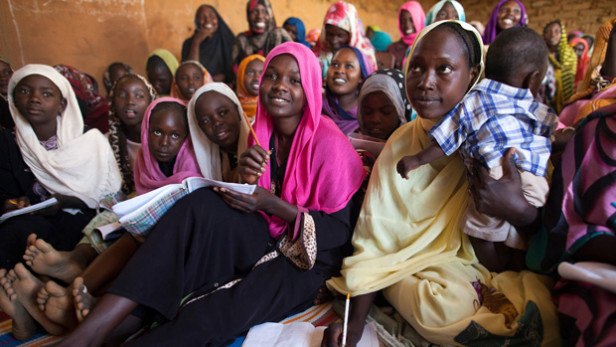500 days and counting: Progress for girls and women means progress for all
500 days and counting: Progress for girls and women means progress for all

August
18 marks 500 days remaining before the Millennium Development Goals
expire at the end of 2015. Some countries are on track to meet those
goals and some are not, and central to the difference is their relative
levels of investment in women and girls.
The
MDGs emerged from an historic summit of world leaders to mark the new
millennium nearly 15 years ago. Since then, countries that worked to
boost girls’ education, women’s rights and comprehensive maternal,
sexual and reproductive health care saw benefits not just for gender
equality and longer lives for women and children but in other areas as
well — against poverty and hunger, against diseases including HIV and
AIDS, and toward a more sustainable environment. Investment in girls and
women turned out to be the most cost-effective way to advance on all
the goals.
Women Deliver was
organized to point out this connection. At three global conferences of
activists and decision-makers from around the world — in London in 2007,
in Washington, D.C. in 2010 and in Kuala Lumpur in 2013 — it provided
statistics and case studies that proved the truth of its slogan, “Invest
in women — it pays!” Every year brought more proof and better examples
of investments in girls and women in which everybody won. So today, as
the international community begins final MDG assessments and considers
future plans, we are proud to announce that the next triennial Women
Deliver conference will be held on May 17-19, 2016 in Copenhagen,
Denmark.
Like the previous three
gatherings, this one will bring together advocates, policymakers,
journalists, young people, researchers and leaders of the private sector
and civil society to showcase what it means and how it works when women
and girls become the focus of development efforts. It will document the
great results around the world where investment in women rose.
The
Women Deliver 2016 Conference will also be the first major global
conference after the post-2015 development framework, so far called the
Sustainable Development Goals, is decided. It will be a first chance for
strategizing on ways to turn the MDG spurs for growth into the
plowshares of a livable planet, to make startup programs sustainable
over the long term, to bring pilot programs to national scale — in
short, to firm up long-term support, ensure that girls and women are
kept at the center of the new development plans from the beginning, and
include them in operations and evaluations at every stage into the
future.
Copenhagen was chosen because Denmark is a leader and champion for progress in sexual and reproductive health and rights. The Danish International Development Agency has
already launched a new Strategic Framework for Gender Equality, Rights
and Diversity to assist women and girls in seizing opportunities and
resources to take full control over their own lives. The Ministry of
Foreign Affairs of Denmark is fully in support of Women Deliver’s call
for additional global commitment on behalf of girls and women.
The
post-2015 development framework is being developed as we write, and
Women Deliver is working to ensure that decision makers prioritize
maternal, sexual and reproductive health and rights, especially in
countries where inequality prevails and where it would help development
most.
Closing the gender gap in agriculture alone, for example, could lift up to 150 million people out of hunger. Investing $8.1 billion a year in
voluntary family planning would reduce pregnancy-related deaths by
79,000 and newborn deaths by 1.1 million every year. Increasing girls’
school attendance by only 10 percent raises
a country’s GDP by 3 percent. And eliminating barriers to employment
for girls and women could raise labor productivity in some countries by 25 percent.
These
are the facts of life in the 21st century. Imagine a world where no
woman dies giving life, where no baby is born with HIV, where every girl
can attend school and get a quality education, and where everybody has a
chance to fulfill their potential. The post-2015 process can move us
closer to that day — if it prioritizes the health, rights, and
well-being of girls and women.
In these
last 500 days, Women Deliver will build on the momentum generated by our
previous gatherings to see that it happens. We will insist that
adolescents and young people, who predominate in most developing areas,
should get special focus. We will make sure that women are present at
the tables where decisions are made. And we will continue playing a
critical role in fueling the global movement for maternal, sexual and
reproductive health and rights.
We will see you all in Copenhagen!
Aug.
18, 2014, marks the 500-day milestone until the target date to achieve
the Millennium Development Goals. Join Devex, in partnership with the
United Nations Foundation, to raise awareness of the progress made
through the MDGs and to rally to continue the momentum. Check out our Storify page and tweet us using #MDGmomentum.
About the authors



Comments